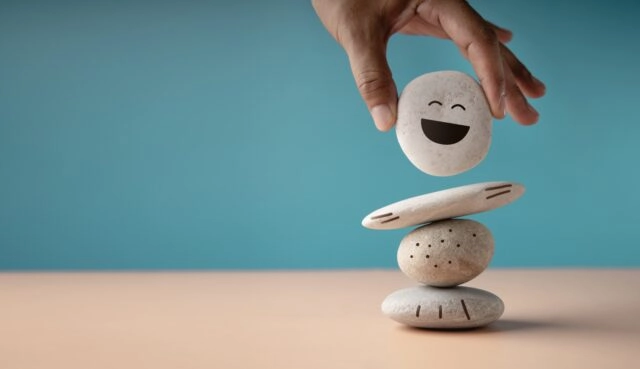When it comes to treating mental health or substance use disorders, addressing symptoms is always of key importance. However, in most cases, true recovery requires a comprehensive approach; one that fosters resilience, emotional balance, and healthier interpersonal relationships.
Dialectical Behavior Therapy (DBT) ticks all these boxes, and a growing body of research has shown it to be a robust, evidence-based path to healing.
At Maui Recovery, we’ve been using DBT for many years to help our clients ensure lasting recovery. Given its holistic approach—one that addresses many facets of mental health—the therapeutic model is closely aligned with our ethos. Read on to find out if DBT could be the right choice for you or your loved ones.
What is Dialectical Behavior Therapy?
Dialectical Behavior Therapy is a form of Cognitive Behavior Therapy (CBT) specifically tailored for those dealing with severe emotional dysregulation, often seen in conditions such as borderline personality disorder, substance use disorders, and PTSD.
DBT combines traditional cognitive-behavioral techniques with mindfulness practices derived from Eastern philosophies. This dual approach helps you strike a balance between accepting your feelings and thoughts as they are, and making the necessary changes to lead a healthier and more fulfilling life.
Think of DBT like you’re being given a toolbox full of different tools, each one designed to help you manage different situations and emotions. It equips you with practical skills and strategies to regulate your emotions, navigate your relationships, and reduce self-destructive behaviors.

In DBT, you work collaboratively with your therapist, building a relationship that becomes an integral part of your healing journey. Together, you explore and understand your experiences, validate your emotions, and learn effective strategies to modify detrimental thoughts and behaviors.
What’s unique about DBT is its emphasis on dialectics—the process of finding balance and harmony between opposites. This can involve learning to accept where you are in your life right now while also working towards positive change for the future.
If you’re dealing with emotional volatility, troubling relationships, or harmful behaviors, DBT could offer you the structure, strategies, and support you need to start rewriting your story.
The roots and purpose of DBT
DBT’s origins can be traced back to the pioneering work of Marsha Linehan in the late 1970s and early 1980s. Linehan, a psychologist, aimed to develop methods to aid people who were suffering from borderline personality disorder.
Inspired by Eastern philosophy (particularly mindfulness and Zen practices), along with cognitive and behavioral theories, Linehan devised a therapeutic model highlighting the significance of balancing acceptance and change. This concept is at the heart of DBT. It encourages you to understand and accept your experiences while teaching new skills to manage your thoughts and behaviors.
Since its inception, the approach has evolved and expanded to treat various mental health disorders, including depression, anxiety, and post-traumatic stress disorder. Today, DBT is recognized as an evidence-based treatment that has proven effective for numerous individuals wrestling with intricate mental health challenges.
The principles and techniques of DBT
DBT’s core principles strive to enhance your quality of life and relationships, help you regulate your emotions and behavior, and reduce self-destructive tendencies.
Below are some of the main techniques used in DBT:
Dialectics
This involves the ability to hold and balance two seemingly opposite truths at the same time. Sounds tricky, we know! But, with practice, it’s simpler than you think. This technique encourages you to steer clear of black-and-white, all-or-nothing thinking, and instead embrace a more nuanced view of your experiences. This involves learning to synthesize different points of view to reach a balanced perspective.
Mindfulness
A central tenet of DBT is an emphasis on being in the present moment—of becoming fully aware of your thoughts, feelings, and actions without judgment. Techniques such as meditation, deep breathing, and body scans are used to cultivate this awareness and create a sense of calm and focus. Ultimately, mindfulness serves as an essential foundation for the effectiveness of the therapy.
Distress tolerance
In contrast to many therapeutic approaches that focus on reducing distress and negative feelings, DBT uses distress tolerance techniques to guide you to accepting and tolerating them. This involves the use of strategies such as distraction, self-soothing (e.g., using pleasant sensory experiences to calm yourself), improving the moment (e.g., using positive affirmations), and considering pros and cons (weighing the benefits and drawbacks of different responses to distress).
Emotion regulation

DBT aims to equip you with tools to manage and change intense and problematic emotions. It involves learning to recognize and label emotions, reducing your vulnerability to negative feelings, and increasing positive emotional experiences. This can encompass techniques such as opposite action (doing something opposite to your emotional impulse when it’s not helpful) and mindfulness of current emotion (observing your feelings without judgment).
Interpersonal effectiveness
This component focuses on honing your skills for effectively managing interpersonal situations. This includes asking for what you need assertively, saying no to certain requests, and coping with interpersonal conflict. Techniques such as role-play, problem-solving, and assertiveness training can be used to foster these skills. Interpersonal effectiveness also involves learning how to set boundaries, maintain self-respect, and build and maintain healthy relationships.
Validation
This occurs when therapists affirm the value of your feelings, thoughts, behaviors, and experiences, providing a supportive environment that encourages acceptance. Therapists use validation to help you understand and accept your emotions, rather than judging or ignoring them. Validation can be a powerful tool to help you manage emotional reactions and reduce self-destructive behaviors.
Behavioral chain analysis
This technique is used to understand and change problematic behavior. It involves dissecting a particular behavior to understand its triggering event, vulnerabilities, responses, and consequences. Behavioral chain analysis can help you identify patterns, make sense of seemingly irrational behaviors, and develop effective strategies for change.
Skills generalization
Finally, DBT teaches you to take the skills learned in therapy and apply them to various real-life situations and contexts. This might involve ‘homework assignments’ where you practice skills in your daily life or role-play situations in therapy to prepare for future challenges. By generalizing these skills, you can navigate life’s challenges with more resilience, emotional stability, and effective coping strategies.
Dialectical Behavior Therapy vs. Cognitive Behavior Therapy (CBT)
While DBT originally began as an offshoot of CBT, they differ in several unique ways.
Cognitive Behavior Therapy (CBT) is a popular form of therapy that focuses on the link between our thoughts, feelings, and behaviors. Its core principle is that our thoughts or perceptions about situations influence our emotional reactions and behaviors, not the situations themselves. For example, if you perceive a situation as threatening or negative, you may feel anxious or act defensively.
CBT has shown strong efficacy in treating conditions such as depression, anxiety, obsessive-compulsive disorder, phobias, panic disorder, post-traumatic stress disorder, and sleep disorders. The therapy’s success comes from empowering patients with control over their recovery journey and equipping them with practical skills to manage their symptoms.

DBT focuses on behavior modification rather than cognitive restructuring or problem-solving. The approach is particularly beneficial for those exhibiting intense emotional reactions and impulsive behaviors. It’s also proven highly effective for managing self-harm behaviors and chronic suicidal ideation, as well as assisting survivors of sexual trauma.
The philosophical underpinnings of these therapies also vary significantly.
CBT is anchored in rational thinking, drawing from stoic philosophy and the Socratic Method. It encourages you to critically evaluate your assumptions and view your problems logically. In contrast (as we’ve pointed out) DBT is more rooted in Buddhism and Zen practices. It teaches you how to navigate pain and accept circumstances as they are, as well as alleviate the suffering caused by attempts at changing them.
The treatment methods between CBT and DBT also differ.
While both address the interaction between thoughts, feelings, and behaviors, DBT emphasizes emotional regulation, mindfulness, and pain acceptance. The therapy typically includes group skills training sessions, individual therapy, and phone coaching, giving you the tools for self-acceptance, emotional safety, and management of potentially harmful behaviors. Once patients have mastered these skills, they can transition to standard CBT sessions to further address specific negative thought patterns or recurring harmful behaviors, if appropriate.
Research supporting the efficacy of DBT
In the last several decades, myriad studies have revealed the efficacy of DBT in treating addictions, mental health disorders, and comorbidities.
This 1999 study, published in the Journal of the American Medical Association, found DBT to be effective in reducing substance use.
Another study, published in the American Journal of Psychiatry, concluded that DBT was as effective as general psychiatric management in improving outcomes for individuals with borderline personality disorder.
In a randomized controlled trial, researchers found substantial evidence for the positive impact of DBT in the treatment of co-occurring BPD and substance use disorders. The participants undergoing DBT showed significantly greater reductions in substance abuse and dependency compared to those receiving ‘usual’ treatment, demonstrating the potential of DBT in addressing such complex, comorbid conditions.
Furthermore, a meta-analysis of studies on DBT for treating eating disorders demonstrated significant improvements in eating disorder symptoms and behavioral outcomes.
DBT has also proven effective for post-traumatic stress disorder. A study in the Journal of Traumatic Stress discovered that individuals undergoing DBT reported substantial reductions in PTSD symptoms compared to those receiving standard care.
This is just the tip of the iceberg concerning the positive results of DBT research. Every day, new findings affirm its evidence-based effectiveness in treating a wide range of conditions.
Maui Recovery—incorporating Dialectical Behavior Therapy to support lasting sobriety
For over a decade, Maui Recovery has been committed to supporting our clients to overcome addiction. Our experience has shown that DBT can be incredibly effective in helping you regain control of your life and overcome your dependencies. Regardless of the substance or behavior you’re trying to overcome, DBT offers a supportive framework to help you regain control of your life.
The power of this therapeutic model lies in its unique blend of acceptance and change—something close to the heart of our recovery center. During your journey with us, you’ll learn to acknowledge your thoughts, feelings, and addiction’s reality without judgment. Our expert therapists will guide you towards transformative changes, helping you replace destructive behaviors with healthier coping mechanisms.
Surrounded by the beautiful nature of Hawaii, within the tranquility of our luxury facility, we can help you unlock your potential and build a fulfilling life. Ultimately, your path to recovery isn’t about avoiding the storm of addiction; it’s about learning to navigate it skillfully. With DBT incorporated into our personalized treatment plans, we can equip you with the tools necessary for lasting recovery, fostering a life of wellness and substance-free living.
If you’d like to talk to us about DBT, or anything related to our treatment programs, please don’t hesitate to contact us.









